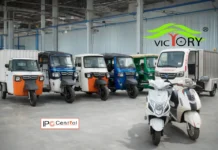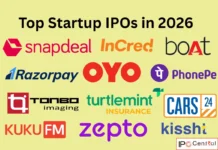With all the volatility and poor sentiments in the secondary markets right now, it is only natural that IPOs are put on the backburner. In a similar vein, pre-IPO shares – which usually attract buyers during bull markets – are now in doldrums with prices of many favorites coming down. Nevertheless, it may be a good time to understand the basics of pre-IPO shares so that you can take advantage of the same when the tide turns. Here, we have compiled some frequently asked questions (FAQs) for pre-IPO shares.
Table of contents
Should I buy pre-IPO shares? Is it beneficial to invest in pre-IPO shares?
If you are a regular investor in stock market, chances are high that these questions came to your mind at least once in the eventful last one year. Yet, investment in pre-IPO shares isn’t very popular with general investing public and is largely restricted to high-networth individual (HNI) investors. If you are an investor and looking to understand this space better, don’t lose your heart as this definitive guide to pre-IPO investing will clear all your doubts.
Read Also: Biggest Unlisted Companies in India
What are Pre-IPO shares? Where are they traded?
Most of us are aware about the IPO process and that shares are offered for the first time to general public through this route.
However, even before a company launches its IPO, there could be several shareholders in it. Most of the times, these shareholders are key officials, directors, employees and investors in the company. These shares, held by various shareholders and investors, are called pre-IPO shares.
Nowadays, many start-ups offer stocks to their employees as a retention tool. For various reasons, companies may defer stock market listing for a long time which means shareholders wouldn’t have a ready market to sell their shares. Some of these shareholders may want to sell their pre-IPO shares before listing. Since there is no established mechanism for ready buying and selling for such shares, these are traded through stock market dealers which act as the interface between buyers and sellers.
Read Also: All About Tata Technologies Unlisted Share Price
What is vesting period in pre-IPO shares?
As mentioned above, pre-IPO stocks are sometimes offered to retain key people under Employee Stock Option Plan (ESOP) and these shares usually have a vesting period. If an employee leaves the company during the vesting period, the shares go back to the company and may be cancelled.
There is no standard timeframe for vesting period and it could range from 6 months to 2 years or even more. An investor looking to invest in pre-IPO shares need to make sure that the stocks are fully vested.
Is investing in pre-IPO stocks risky?
Investing in itself is quite risky (ask FD holders in PMC Bank and DHFL!) and equity investing is even more risky (think Yes Bank, Vakrangee, PC Jeweller, DHFL). Nevertheless, investing in a publicly listed company is relatively easy as you can check stock price movement, regular announcements, attend shareholders meetings and even grill the management, if required. Investors may still end up with lemons in their portfolios but that’s another matter.
Investing in pre-IPO shares nullifies most of these perceived advantages. After all, a privately held company is under no obligation to share updates about its operations and financial performance. It will be counterproductive as this information may actually be used by competitors. To this extent, pre-IPO shares are risky.
This might be a small price to pay for investors looking to own shares in start-ups which promise high levels of revenue and profit growth in coming years. At the same time, there are unlisted companies with high standards of corporate governance. Some companies may have private equity investors on board which do thorough due diligence before making investments and thus, their presence is reassuring for buyers of pre-IPO shares.
Is there a lock-in for pre-IPO stocks? What are the restrictions?
Pre-IPO stocks are locked-in for one year from the date of listing. However, they are freely tradable and can be sold by filling a Delivery Instruction Slip (DIS) before that.
In addition to this limited liquidity of pre-IPO shares, another risk with these shares is that the company in question may simply take a long time to get to the IPO stage. There are several factors beyond the control of company management which may derail its listing plans. It is well established that the groundwork for a decent-sized IPO takes anywhere from 6 to 12 months.
What are the advantages of investing in pre-IPO shares?
Investing in pre-IPO shares has several benefits and getting shares below the IPO price is top most of these. This way, investors can get involved early in the wealth creation journey of a successful startup.
In addition to lower price points, investors also get to invest in opportunities which are otherwise limited to large investors like private equity or venture capital firms. We have seen it number of times (see here and here) that IPO prices jump substantially from pre-IPO levels within a few months leading to windfall gains for pre-IPO investors.
Investors also have a better chance of getting these shares in their demat accounts when compared to the allotment system of IPOs which is more like a lottery. Most investment-grade IPOs are anyway massively oversubscribed leading to lower allotment even in case of winning the lottery.
How to invest in pre IPO shares?
As mentioned above, pre-IPO shares lack a ready market for buying and selling and all transactions need to be carried out through intermediaries which act as market makers. These are mostly well-connected dealers who have access to demand (pre-IPO investors) as well as supply (employees in such companies) side value chains.
The actual process of investing in pre-IPO stocks isn’t necessarily transparent and thus, requires investors to be vigilant. Although the shares are transferred in demat form, the process is essentially offline and involves price negotiation with dealer and upfront payment before getting delivery of shares. These dealers are usually much smaller in size compared to national brokers and this naturally represents a certain degree of risk. We will be publishing a detailed note outlining all the steps involved in the process to help investors.
Pre-IPO FAQ
Can I buy pre-IPO shares?
Financial advisors and specialised brokers are sources for pre-IPO shares. These businesses buy stocks and resell them to interested parties, or they work together with other businesses looking for investors.
Who sells shares in pre-IPO?
In a privately held firm, the CEO, CFO, CTO, and other executives hold the company’s shares and offer their interest to the investors during pre-IPO investing. With these transactions, the executives sell shares they have owned in order to raise money, reducing their ownership stake in the company.
Is it good to invest in pre-IPO?
Because pre-IPO stocks have a low market value, you can earn larger returns on smaller investments, giving you a wider selection of equities and safer returns. Purchasing pre-IPO stock can be a terrific choice for you if you’re trying to diversify your investing portfolio.
Is pre-IPO investment risky?
While there are benefits of investing in pre-IPO shares, it may often be challenging to arrive at a reasonable price discovery in pre-IPO situations due to limited information available and the additional risk of illiquidity.
What are the risks in pre-IPO?
Pre-IPO securities carry a substantial risk of fraud and scams. Some people can try to deceive early investors into buying counterfeit shares. The unlisted market has no regulatory framework, in contrast to the public market, which does.


































Excellent knowledge and advice for new investor about IPOS and Pre IPO
Thankyou very much